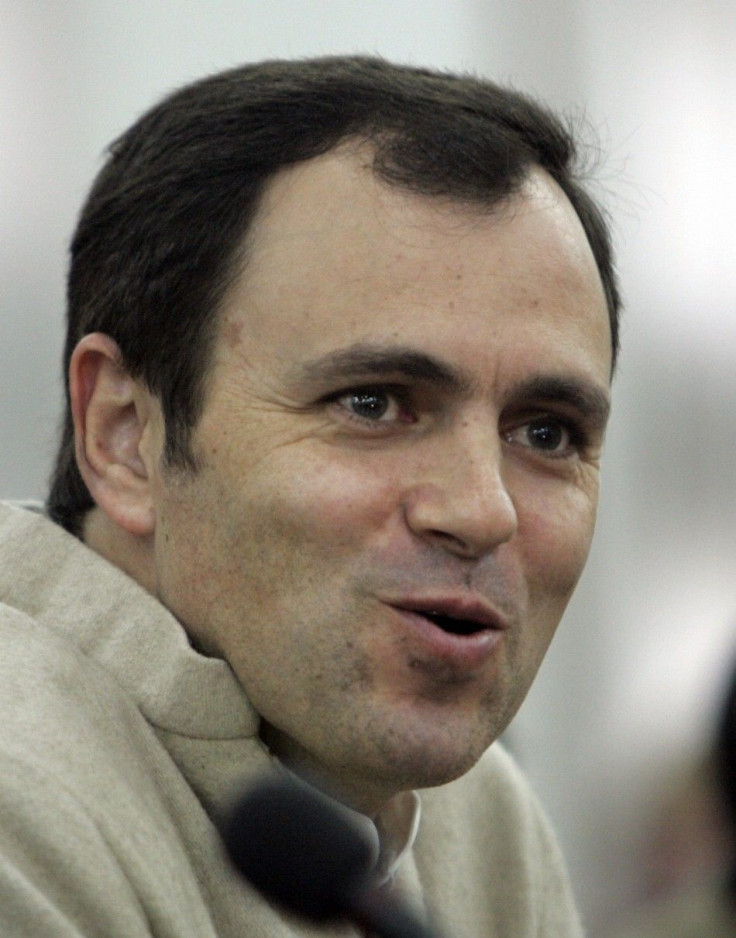Asif Ali Zardari Loses One-Rupee Bet Over Kashmir In Friendly India-Pakistan Wager

Asif Ali Zardari, president of Pakistan, is on the losing end of a friendly wager with Indian Kashmiri politician Omar Abdullah.
The bet: Zardari wouldn't be able to visit the state of Kashmir during his trip to India. The ante: a single rupee. On Sunday, Abdullah joked that Zardari, who didn't make it into Kashmir, is now obligated to pay up.
He owes me one rupee! said Abdullah during an NDTV News televised interview.
Of course, there's much more than a unit of currency at stake. Abdullah's bet was made in good fun when the two men met in Pakistan six years ago, but contentions over a divided Kashmir have been a serious problem for decades.
Abdullah is the Chief Minister of Jammu and Kashmir, an Indian-controlled area within the larger state of Kashmir. Pakistani-controlled areas of the state include Azad Kashmir and Gilgit-Baltistan.
Despite his apparent light-heartedness, Abdullah affirmed that he'd actually hoped Zardari would visit Indian-administrated areas of Kashmir. Certainly, he said. It is long overdue. I would also like to visit [Pakistan-controlled cities] Mirpur and Muzaffarabad.
The dispute over Kashmir has divided India and Pakistan for more than 60 years. The two countries warred over the mutually-occupied state just after achieving independence from Britain in 1947, and then again in 1965. Violent clashes have occurred in Kashmir as recently as 2010, motivated by Islamist-led insurgencies as well as territorial disputes.
Conflicts in Kashmir have exacerbated tensions over political and religious differences between the two countries.
Relations hit a low point in 2008, when the Indian city of Mumbai was ambushed by ten gunmen. For days, the terrorists committed a string of fatal attacks throughout the metropolis. Nine of the assailants were killed by Indian forces; the tenth, who was sentenced to death, told Indian authorities that Pakistan's Hafiz Saeed had masterminded the terror.
Saeed is a popular figure in Pakistan, where officials have refused to arrest him despite India's demands for justice. The United States recently threw its own hat into the ring by placing a $10 million bounty on Saeed's head.
Enmity between the two nuclear-armed neighbors has long been a cause for concern throughout the international community, so it was no small matter when Zardari visited Indian Prime Minister Manmohan Singh in Delhi this weekend. It was the first time in seven years that one leader has visited the other in his home country, although Singh and Manmohan did meet in Russia as recently as 2009.
Although Zardari's visit was mostly symbolic, it may signal the beginning of a thaw in relations. If all goes well, this could be the first step toward opening up normalized trade and peaceful dialogue between the distrustful neighbors.
I am very satisfied with the outcome of this visit, said Singh after the leaders had spoken for 40 minutes. The relations between India and Pakistan should become normal -- that is our common desire.
Acknowledging ongoing tensions, Abdullah also approved of the prime minister's visit. I was not expecting too much in the first place, he said. Achieving stability in Kashmir is a long way off, but at least the chief minister is up by one rupee. If all goes well, Zardari may yet set foot in India's Kashmir -- and Abdullah will have to give that rupee back.
© Copyright IBTimes 2025. All rights reserved.






















